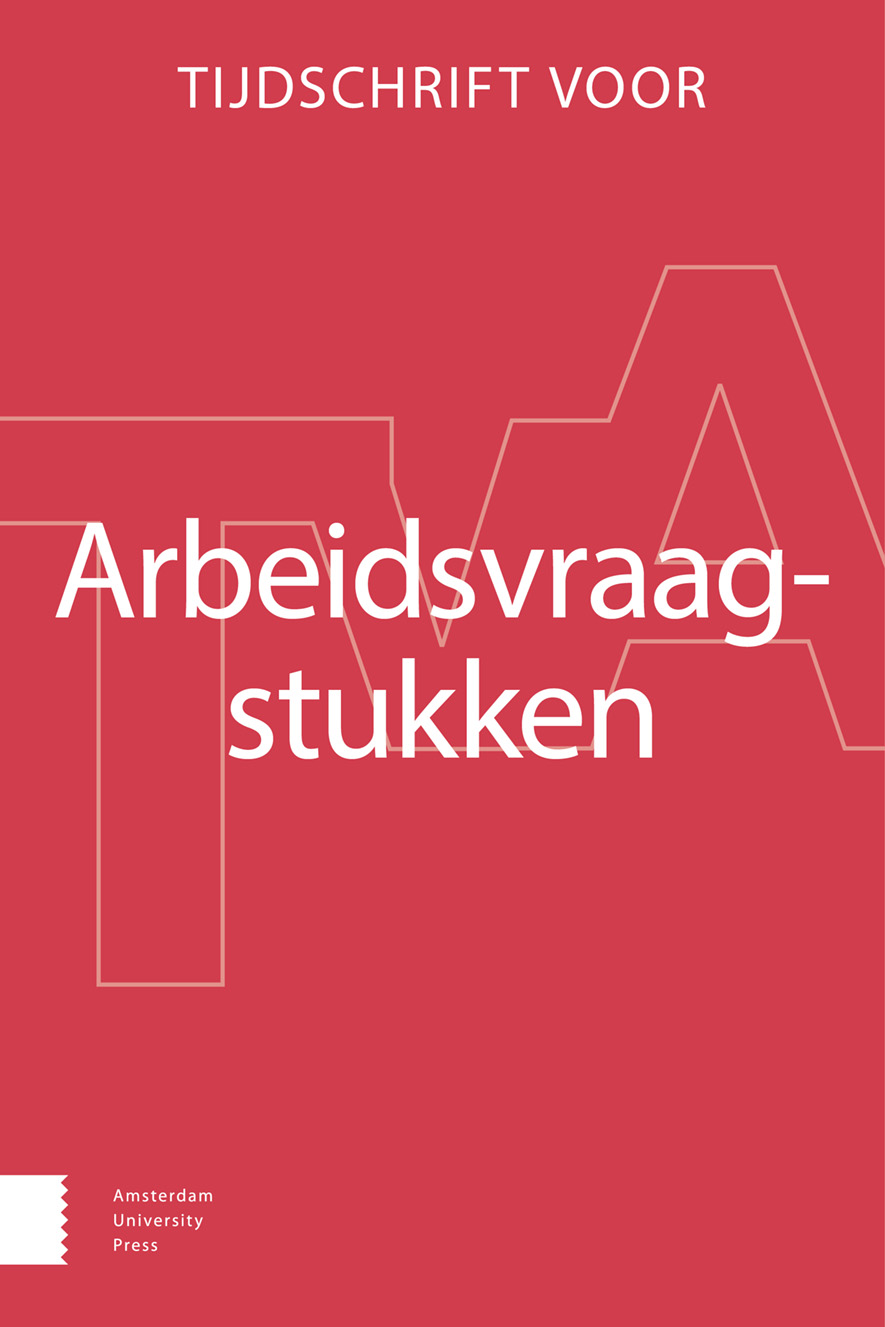-
OAHet werk blijft liggen: oorzaken en gevolgen van onvervangbaarheid van werkzaamheden
- Amsterdam University Press
- Source: Tijdschrift voor Arbeidsvraagstukken, Volume 25, Issue 4, dec. 2009,
Samenvatting
The work remains. Causes and consequences of irreplaceability in jobs
When a worker cannot do his job because of illness or vacation, there are three logical possibilities: (1) the work is done by someone else; (2) the work remains until the worker returns; (3) the work never gets done at all. What happens is likely to be important for the workload and time pressure of employees. However, consequences also extend to the employer. These consequences will probably influence his choices to design the job and to make tasks more or less transferable. In this article we present a theoretical model in which these choices by the employer depend on three levels: technology, market pressures, and employee behaviour. The resulting hypotheses are tested using the Time Competition Survey 2003. The results generally confirm the theoretical model. All three levels have an independent influence. For employees, the consequences are limited to an increased time pressure. Irreplaceability is in particular the fate of the higher educated. When they are on leave, their work is likely to pile up.


